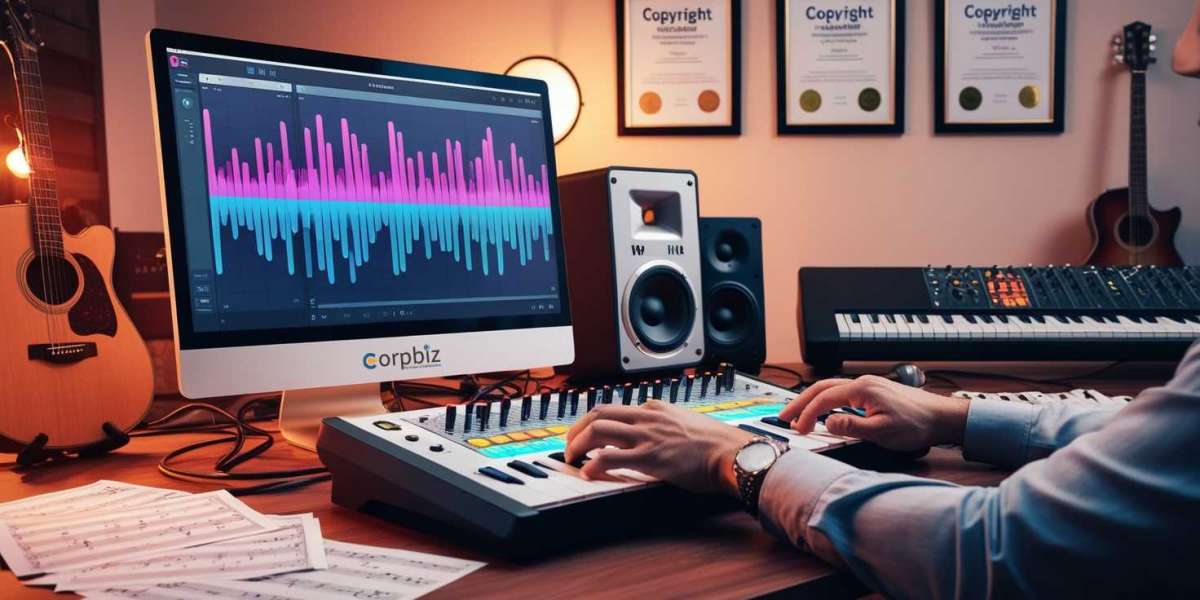In the dynamic world of music production, ensuring that our creative works are protected is paramount. For music producers, understanding the significance of copyright is essential not only for safeguarding our intellectual property but also for maintaining our financial interests. In this article, we will explore the importance of copyright for music producers, delving into aspects such as the copyright registration process, the objectives of copyright law, and various licensing options available.
Understanding Copyright
Copyright is a legal framework that grants creators exclusive rights to their original works, allowing them to control the use and distribution of their creations. For music producers, copyright serves several crucial purposes:
- Protection of Creative Works: Copyright protects musical compositions, sound recordings, and performances, ensuring that our original creations are not used without our permission.
- Financial Security: By securing copyright, we can monetize our works, earning revenue through sales, streaming, and licensing.
- Legal Recourse: Copyright provides a legal avenue for us to take action against infringement, allowing us to enforce our rights and seek compensation for unauthorized use.
The Copyright Process
Understanding the copyright process is vital for music producers who want to protect our creations effectively. The process typically involves the following steps:
- Creation of the Work: Copyright protection begins the moment we create an original work fixed in a tangible medium. This means our music must be recorded, written down, or otherwise captured in a form that can be perceived, reproduced, or otherwise communicated.
- Copyright Registration: While copyright protection is automatic upon creation, registering our work with the copyright office provides additional legal benefits. Copyright registration establishes a public record of our work, which is crucial in case of disputes. It also allows us to pursue statutory damages and attorney fees in infringement cases.
- Filing Application: To register, we need to complete a copyright application, providing details about the work, its authorship, and any necessary documentation. The registration process may vary slightly based on jurisdiction, but in India, we can typically expect a timeframe of 6 to 8 months for processing.
- Receiving Registration Certificate: Once approved, we will receive a copyright registration certificate, officially confirming our ownership and rights over the work.
Objectives of Copyright Law
The Objectives of Copyright Law are designed to balance the interests of creators and the public. For us as music producers, understanding these objectives is essential:
- Encouraging Creativity: By providing legal protection, copyright encourages us to create and innovate, knowing our works will be safeguarded.
- Promoting Fair Use: While copyright grants us exclusive rights, it also allows for certain limitations, promoting fair use of our works in specific contexts, such as criticism, commentary, or educational purposes.
- Facilitating Cultural Growth: Copyright law aims to foster the growth of culture and the arts by ensuring that creators can profit from their contributions, thereby encouraging a vibrant creative ecosystem.
Compulsory Licensing and Implied Licenses
In addition to understanding copyright registration and the objectives of copyright, we must also familiarize ourselves with compulsory licensing and implied licenses, as these concepts play a significant role in our industry.
Compulsory Licensing Copyright
Compulsory licensing copyright refers to the legal provision that allows someone to use a copyrighted work without obtaining explicit permission from the copyright holder, under specific conditions. For music producers, this is particularly relevant when our works are used for public performances, recordings, or broadcasts. In India, if a song is recorded and released by a producer, any subsequent producer wishing to use that song must pay a royalty to the original producer, following a predetermined rate set by the Copyright Act.
This system can benefit us as music producers, as it ensures we receive compensation when our works are used commercially. However, it also means that we must be vigilant in tracking the use of our music to ensure we receive our rightful dues.
Implied License Copyright
Implied License Copyright is another concept that we must understand. An implied license arises when a copyright holder gives permission for someone to use their work without a formal agreement. For example, when we share a track with another producer for collaboration or remixing, there may be an implied understanding that they can use our work in a specific context.
However, it is crucial for us to clarify the terms of any collaboration to avoid misunderstandings or potential disputes. Establishing clear agreements can help protect our rights and ensure we receive credit and compensation for our contributions.
Conclusion
In conclusion, understanding the importance of copyright for music producers is vital in today’s competitive music industry. From the Copyright Registration process to the objectives of copyright law, we must equip ourselves with the knowledge needed to protect our creative works. By ensuring our rights are safeguarded, we can focus on what we do best: creating music that resonates with audiences.
As we navigate the complexities of copyright, we should also remain aware of compulsory licensing and implied licenses, ensuring we understand how these legal frameworks affect our work. By taking proactive steps to protect our intellectual property, we can build sustainable careers in music production.
FAQs
- What is the copyright registration process for music producers in India?
The copyright registration process involves creating the work, filling out an application form with necessary details, and submitting it to the Copyright Office in India. Once approved, a registration certificate is issued.
- How does compulsory licensing work for music producers?
Compulsory licensing allows other producers to use your copyrighted work under specific conditions, typically requiring them to pay a royalty set by law. This ensures you are compensated when your music is used commercially.
- What is the difference between copyright registration and an implied license?
Copyright registration formalizes your ownership and rights over a work, while an implied license allows someone to use your work without explicit permission, based on context or previous agreements. It is essential to clarify terms to avoid disputes.






